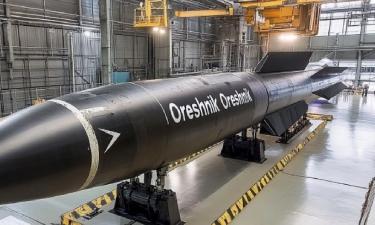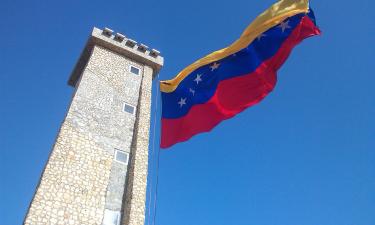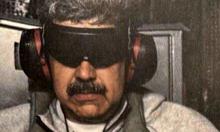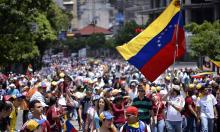Personality of the Week: Vladimir Putin
President of the Russian Federation firm and resolute in Bratislava
Vladimir Putin again demonstrated his statesmanship this week in Bratislava in his meeting with President Bush, responding to the latter's "concerns" with diplomacy and tact, two pages that Condoleezza Rice might wish to take from the Russian President's book.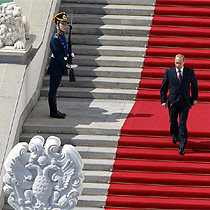
While Vladimir Putin never expressed any "concerns" over George Bush having sent a record number of people to their deaths as governor of Texas and while Russia answered the USA's act of mass murder in Iraq through the proper diplomatic channels, in the United Nations Organization, George Bush expressed four "concerns" about the Russian Federation's internal and external policy: nuclear cooperation with Iran, freedom of the press in Russia, treatment of minorities and centralization of power.
"The way democracy is established and consolidated should not compromise the concept of democracy itself" was the skilful reply of the Russian President, who informed George Bush that Russia chose its path towards democracy 14 years ago without needing any help from outside. In other words, Russia does not need the snide remarks of a historically and hysterically Russophobic West.
Vladimir Putin stands for the continuation of improved standards of living for the citizens of the Russian Federation and by implementing the authority of the State, not Moscow, over the rest of his country, he takes a patriotic stance, implanting the rule of law over the law of oligarchy and guaranteeing that the resources of the Russian Federation are for the benefit of Russians.
"Russians" means hundreds of ethnic groups because the Russian Federation is, and always has been, a collection of ethnic groups, races, cultures and religions. Therefore what does President Bush mean by the treatment of "minorities"? Chechens?
By "Chechens", let us not read the people of the Republic of Chechnya, the vast majority of whom voted to remain inside the Russian Federation in a free and fair democratic election process but let us read "the 5% of extremists who make a living through arms trafficking, drugs trafficking, kidnapping and prostitution and these days, through armed conflict". If George Bush wants to take the side of this minority of international terrorists and criminals, then he is no better than Osama bin Laden. Maybe George Bush had better visit Beslan to remind him of what international terrorism means.
Despite these blatant insults, Vladimir Putin had the personality and skill to show that he is a great statesman, declaring that the two countries have more in common than differences, maintaining a climate of friendship, poisoned in advance by insolent and intrusive comments from both Condoleezza Rice and George Bush in the days preceding the meeting.
Born in Leningrad on 7th October 1952, Vladimir Putin graduated from the Leningrad state University with a degree in law in 1975, later taking a doctorate in economics.
He worked in the KGB (State Security Service), becoming the Director of Operations in the Democratic Republic of Germany from 1985 to 1990. In this year, he returned to Leningrad to be Assistant to the Dean of the State University, responsible for International Affairs, before becoming advisor to the Mayor of Leningrad.
In June 1991, Vladimir Putin became President of St. Petersburg City Council's International Relations Committee and after 1994, took on the extra post of First Deputy Mayor of St. Petersburg. In August 1996, he was appointed Deputy Director of President Yeltsin's Property Management Directorate.
In May 1997, he became Deputy Director of the Presidential Administration and Director of the Central Supervision and Inspections Directorate and one year later, was promoted to First Deputy Director of the Presidential Administration. In July 1998, he became Director of the Federal Security Service (FSB) and after March 1999, took on the extra post as Secretary of the Security Council.
Prime Minister in August 1999, Vladimir Putin became acting President on 31st December 1999 and was elected for his first term in office on 26th March 2000, being re-elected on 14th March 2004.
In Vladimir Putin, the citizens of the Russian Federation have a President who is a patriot, who defends the interests of the state and of his people and who will not sell out or sell away their interests in the face of continuing hostility from a jealous clique of nations which are eyeing Russia's considerable mineral resources and which would love to see the Federation implode into hundreds of micro-states.
In Vladimir Putin, the citizens of the world have a partner and an ally who stands for the rule of law, who stands for the resolution of crises within the United Nations Organization, using the principles of discussion, debate and dialogue over blackmail, bullying and belligerence. In short, Vladimir Putin stands for, and practices, Democracy.
Subscribe to Pravda.Ru Telegram channel, Facebook, RSS!


